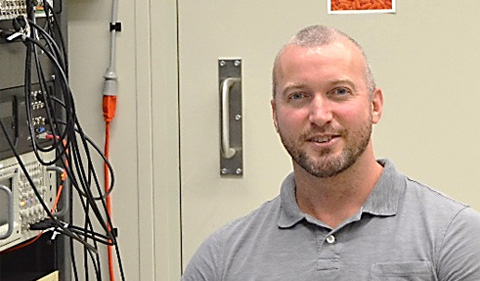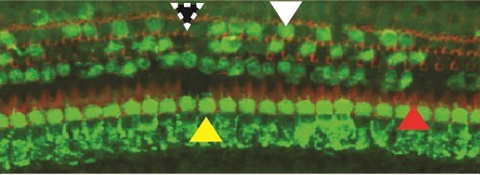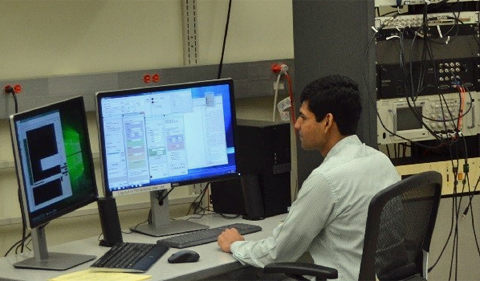Dr. Mitchell Day, Assistant Professor of Biological Sciences at Ohio University, is the principal investigator on a new study funded by the National Institute on Deafness and Other Communication Disorders of the National Institutes of Health (NIH).
Day is joined by two co-investigators, Dr. Soichi Tanda, Associate Professor of Biological Sciences, and Dr. Mark Berryman, Associate Professor of Biomedical Sciences at the Heritage College of Osteopathic Medicine. Their three-year NIH grant is funded at $453,000.
Their study seeks to discover changes in the brain due to sensorineural hearing loss (SNHL)—the most common form of permanent hearing loss affecting over 70 million Americans. SNHL is usually caused by cumulative overexposure to loud sounds. Individuals with SNHL not only have a reduced ability to detect sounds, but also have a hard time pinpointing the direction of where sounds are coming from. This is challenging because we use our ability to localize sounds in order to focus on one specific sound in the midst of others. It is unknown what causes sound localization ability to be worse in those with SNHL.
Day and colleagues will measure how the responses of neurons in the brain involved with sound localization change after hearing loss induced by overexposure to loud sounds. Their results may inform the design of better hearing aids to help people with SNHL locate and pay attention to sounds in noisy environments.
- See more information at the Auditory Neurophysiology Laboratory.





















Comments